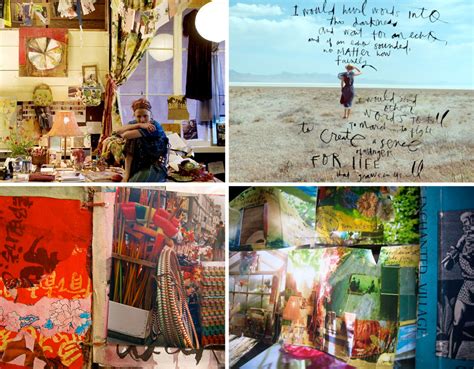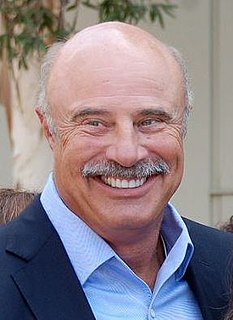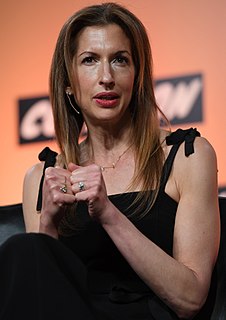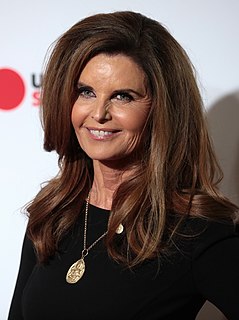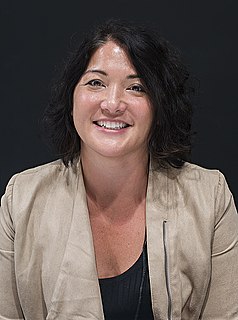A Quote by Malcolm Gladwell
Our world requires that decisions be sourced and footnoted, and if we say how we feel, we must also be prepared to elaborate on why we feel that way...We need to respect the fact that it is possible to know without knowing why we know and accept that - sometimes - we're better off that way.
Related Quotes
My tendency is to want to say to the person, "Do you understand why I feel this way?" I usually do say that. And sometimes it doesn't go well. By this I mean we hit an impasse again. Not that I need to hear exactly what I want to hear, but I need to know I am heard. Those moments make for a better friendship. But I can't let it go. For good or bad.
Why do so many marriages fail? Because nobody gets taught how to be married. We're not taught how to pick a mate, or why to pick a mate; we don't know how to manage our emotions once we're in a marriage; we don't know how to resolve marital conflict. Married people have never been taught why they or their spouses feel the way they do and act the way they do. Nobody has ever taught us the fundamentals.
I have been asked so many times why I live a green life, why water conservation, why getting wells in places, why work with water organizations, why conserve water at home with double-flush toilets, why I tell my daughters, "Turn off the tap" so much. Sometimes I want to say, "I wish I knew the answer." My answer really is: I don't understand why everyone doesn't feel this way.
We know for a fact the Russians tried to change the outcome of our election, attacking the very fundamental of democracy. We know they did that. We need to know how, we need to know why, and most of all we need to know what to do to prevent this kind of activity, which they continue to carry on in free nations around the world.
It's obvious that I must explain what I want from an actor, but I don't want to discuss everything I ask him to do, because often my requests are completely instinctive and there are things I can't explain. It's like painting: You don't know why you use pink instead of blue. You simply feel that's how it should be - pink. Then the phone rings and you answer it. When you come back, you don't want pink anymore and you use blue - without knowing why. You can't help it; that's just the way it is.
I’m curious about things that people aren’t supposed to see—so, for example, I liked going to the British Museum, but I would like it better if I could go into all the offices and storage rooms, I want to look in all the drawers and—discover stuff. And I want to know about people. I mean, I know it’s probably kind of rude but I want to know why you have all these boxes and what’s in them and why all your windows are papered over and how long it’s been that way and how do you feel when you wash things and why don’t you do something about it?
What interest, zest, or excitement can there be in achieving the right way, unless we are enabled to feel that the wrong way is also a possible and a natural way, nay, more, a menacing and an imminent way? And what sense can there be in condemning ourselves for taking the wrong way, unless we need have done nothing of the sort, unless the right way was open to us as well? I cannot understand the willingness to act, no matter how we feel, without the belief that acts are really good and bad.
Sometimes you feel a need to express yourself, and there is no better way than to go to places where people need everything. It's dramatic, it's tragic. You just can't understand why, in the world of today, there are still things like that. The images you see on TV kill you. Of course when you are there (at these trouble spots) you can't turn off the TV. You are face-to-face with reality.
Through compassion it is possible to recognize that the craving for love that people feel resides also in our own hearts, that the cruelty the world knows all too well is also rooted in our own impulses. Through compassion we also sense our hope for forgiveness in our friends' eyes and our hatred in their bitter mouths. When they kill, we know that we could have done it; when they give life, we know that we can do the same. For a compassionate person nothing human is alien: no joy and no sorrow, no way of living and no way of dying.
I don't want to be lofty when I say this, but I don't know what a success is any more. I know how we define it, but that was a moment where I went, "Wait, who am I?" You could feel the business, in particular, kind of go "He's all right, let's go over here." I started to go, "Wait, I know why I love to do this." I think I got off track in why I love to do it.


